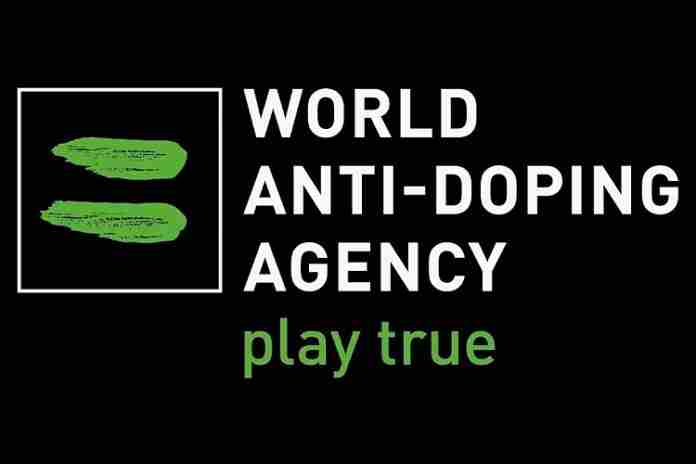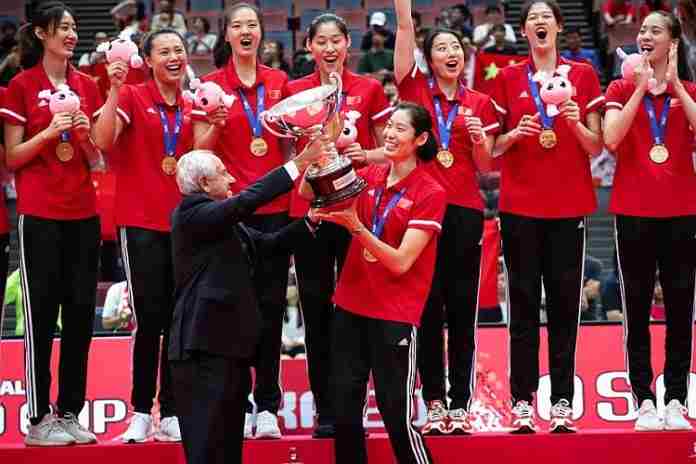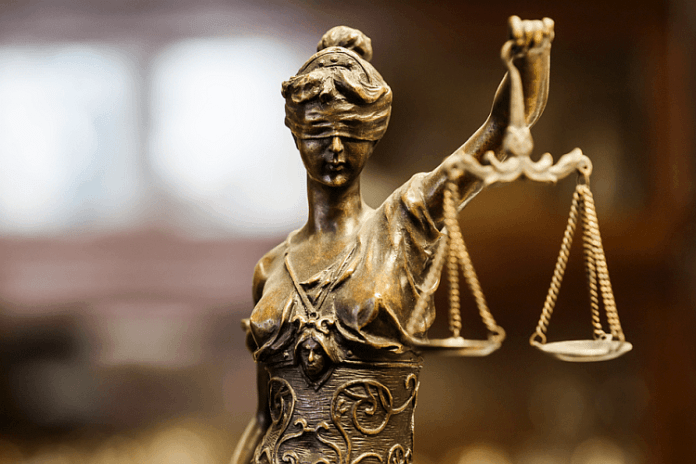 At Friday’s joint news conference between the International Olympic Committee chief Thomas Bach of Germany and IAAF President Sebastian Coe of Great Britain, the question of whether Russia will be allowed to participate in the 2020 Olympic Games in Tokyo came up immediately.
At Friday’s joint news conference between the International Olympic Committee chief Thomas Bach of Germany and IAAF President Sebastian Coe of Great Britain, the question of whether Russia will be allowed to participate in the 2020 Olympic Games in Tokyo came up immediately.
Given that the issue was newly-uncovered evidence of data manipulation in the Moscow Laboratory files turned over to the World Anti-Doping Agency, Bach said:
“So there has to be a fresh look at this. In the meantime what has also changed are the rules and the regulations since April 2018, such a kind of situation is in the hands of WADA and then [the Court of Arbitration for Sport], and WADA there is applying a due process, there is now given RUSADA the right to be heard and then they will come up with a decision within WADA and the IOC of course fully respects these new rules and these new procedures.”
Let’s be clear about what Bach is saying: the decision on what to do with Russia for Tokyo 2020 will come from WADA and not the IOC. That’s quite a switch from the procedure used for Rio 2016 and the PyeongChang 2018 Winter Games. But it is all included in a 69-page document entitled International Standard for Code Compliance by Signatories.
So what does it say?
It outlines, in painstaking detail and legal language, the exact procedures to be used in case of an alleged violation of the World Anti-Doping Code. In this case, the complaint is against a National Anti-Doping Organization (NADO), in specific, the Russian Anti-Doping Agency (RUSADA). Right now, the “fast track” procedure is being used:
(1) The WADA staff has provided RUSADA with copies of its reports identifying the issues with the Moscow Lab data and asked for a response within three weeks of the notice of 17 September 2019.
(2) Once the reply is received, the WADA staff will report to the WADA Compliance Review Committee, which is then tasked to come up with recommendations on what sanction – if any – to impose. The WADA announcement noted that “No fixed timeline can be set for this, as due process must be respected, but the ExCo was assured that WADA is pursuing the matter robustly and as quickly as practicable.”
(3) The Compliance Review Committee’s recommendations to the Executive Committee can be accepted or rejected, in whole, or in part, and must then be turned back to the Compliance Review Committee. Another set of recommendations is then due and if the Executive Committee doesn’t like that second version, it can craft its own set of sanctions.
(4) Once the WADA Executive Committee decides to approve sanctions or impose its own, RUSADA will be able to file an appeal with the Court of Arbitration for Sport and have the matter heard. That decision can be appealed – on limited grounds – to the Swiss Federal Tribunal.
All of this takes time, which is why WADA is pushing the process forward with “only” about 10 months remaining before the Tokyo Games open on 24 July 2020.
That’s the process; what sanctions can be imposed?
The list is in section 11, with four pages of potential consequences and three more pages of conditions and definitions! In short form, CRC’s recommendation options include (grouped for easier reference):
● Individuals and/or organizations may be ineligible to be on any WADA committee;
● Organizations may not be allowed to host a WADA event or meeting;
● Individuals affiliated with a sanctioned entity may not be allowed to participate in WADA activities or oversight group;
● Affiliated individuals may not stand for election to WADA offices;
● Special monitoring may be imposed on the organization’s anti-doping efforts;
● The organization’s anti-doping activities may be “taken over” by an appointed group (another anti-doping organization);
● If a “takeover” is not possible, “it may be necessary as an alternative measure to exclude Athletes who would have been covered by the Signatory’s Anti-Doping Activities from participating in the Olympic Games/Paralympic Games/other Events, in accordance with Article 11.1.1.10, in order to protect the rights of clean Athletes and to preserve public confidence in the integrity of competition at those events.”
● The country could be ineligible to host an Olympic Games, Paralympic Games, or other international event.
● Imposition of a fine, loss of funding from the IOC or other bodies for a specified time, or a recommendation to a public authority to de-fund the anti-doping agency of that country.
● Suspension of the National Olympic Committee or National Paralympic Committee;
● “[E]xclusion of the following Persons from participation in or attendance at the Olympic Games and the Paralympic Games and/or other specified Events for a specified period: (a) the National Olympic Committee and/or National Paralympic Committee of the Signatory’s country; (b) the Representatives of that country and/or of the National Olympic Committee and/or National Paralympic Committee of that country and (c) and/or the Athletes and Athlete Support Personnel affiliated to that country and/or to the National Olympic Committee and/or National Paralympic Committee and/or National Federation of that country.”
And there is more. In section 11.2, what to do in case of “Aggravating Factors” – like a cover-up of positive test data – is explained:
“In such a case, if there are Aggravating Factors, that case shall attract significantly greater Signatory Consequences than a case where there are no Aggravating Factors. …
“The Signatory Consequences imposed in a particular case shall go as far as is necessary to achieve the objectives underlying the Code. In particular, they shall be sufficient to motivate full Code Compliance by the Signatory in question, to punish the Signatory’s non-compliance, to deter further non-compliance by the Signatory in question and/or by other Signatories, and to incentivize all Signatories to ensure they achieve and maintain full and timely Code compliance at all times. …
“Above all else, the Signatory Consequences imposed should be sufficient to maintain the confidence of all Athletes and other stakeholders, and of the public at large, in the commitment of WADA and its partners from the public authorities and from the sport movement to do what is necessary to defend the integrity of sport against the scourge of doping. This is the most important and fundamental objective, and overrides all others.” (emphasis added)
Under these provisions, the IOC has ceded its authority to ban an individual, National Olympic Committee, International Federation, National Anti-Doping Agency or similar group to WADA and it will be up to WADA to determine what sanctions are appropriate.
The results could be catastrophic for Russian athletes currently competing, and the guidelines do not include an athlete-by-athlete waiver such as the IOC created for the PyeongChang Winter Games.
This will be interesting, and whatever happens will be controversial. But this is the path to be followed; stay tuned.
Rich Perelman
Editor
If you enjoyed this commentary, sign up to receive the TSX Daily by e-mail by clicking here. You can also refer a friend by clicking here.


























